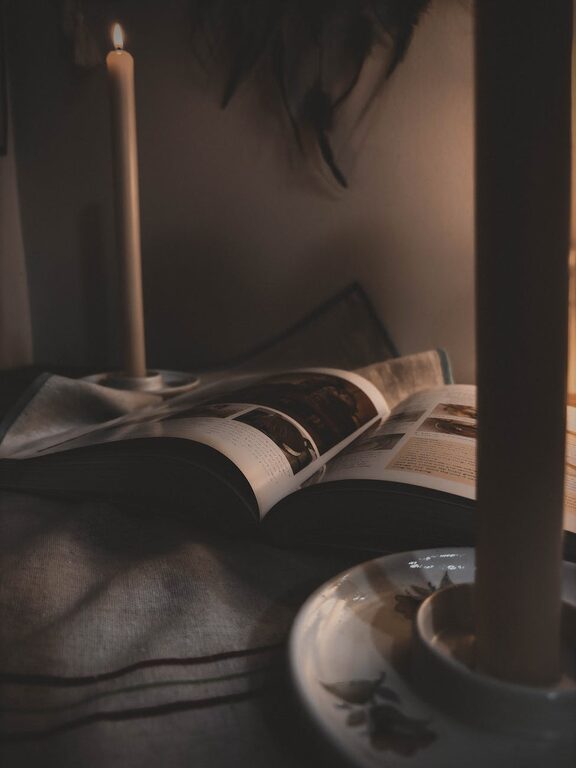Unwinding after a busy day can sometimes feel just as stressful as the day itself. However, cultivating a calmer evening routine doesn’t require a complete lifestyle overhaul. With small, intentional changes, you can create a soothing end to your day that promotes relaxation and prepares you for restful sleep. Here are practical steps to help you build a calming evening ritual.
Why a Calmer Evening Routine Matters
A calm evening routine can improve your mental well-being, reduce stress, and enhance your sleep quality. When you dedicate time to relax and unwind, your body and mind shift out of “work mode” and into rest mode, which benefits your overall health.
Start by Setting a Consistent Time to Wind Down
One of the simplest ways to build a calmer evening routine is to pick a time to begin winding down each night. This might be an hour or more before you plan to go to bed.
– Choose a time that works with your schedule.
– Use gentle reminders, like an alarm or phone notification.
– Aim to stick to this time every night for consistency.
This signals your body that it’s time to relax and helps regulate your internal clock.
Dim the Lights to Promote Relaxation
Bright lights, especially from screens, can interfere with your body’s natural production of melatonin, a hormone that helps you fall asleep.
– Use dim lamps or candles instead of overhead lighting.
– Consider installing smart bulbs that gradually lower brightness.
– Avoid screens at least 30 minutes before bedtime.
This softer lighting helps create a peaceful atmosphere and signals to your brain that it’s time to slow down.
Create a Screen-Free Zone
With smartphones, tablets, and TVs so common, it’s easy to spend your evenings glued to screens. Yet, the blue light emitted by these devices can disrupt your sleep.
– Set a specific time to turn off all screens.
– Replace screen time with reading, journaling, or light stretching.
– Keep phones away from your bed to avoid temptation.
This break from digital devices reduces mental stimulation and promotes calmness.
Incorporate Gentle Movement or Stretching
Moving your body can help relieve tension built up throughout the day. Gentle activities like stretching, yoga, or a slow walk support relaxation without raising your energy too much.
– Try simple stretches focusing on your neck, shoulders, and back.
– Take a leisurely walk outside if time allows.
– Explore beginner-friendly evening yoga routines online.
These movements ease muscle tightness and prepare your body for rest.
Practice Mindfulness or Breathing Exercises
Mindfulness practices can lower anxiety and awaken a sense of calm. Even just a few minutes can make a difference.
– Try deep breathing exercises, such as inhaling slowly for four counts and exhaling for four counts.
– Use guided meditation apps designed for evening relaxation.
– Spend time focusing on sensory details, like soft sounds or scents.
These methods help quiet your mind and reduce stress from the day.
Prepare a Relaxing Environment
Your surroundings influence how easily you can relax. Taking a few steps to prepare your space can promote tranquility.
– Declutter your bedroom before bed to create a serene setting.
– Use calming scents like lavender or chamomile through essential oils or candles.
– Keep the room cool, quiet, and comfortable.
Creating an inviting environment supports both relaxation and better sleep.
Limit Caffeine and Heavy Meals in the Evening
What you consume in the hours before bedtime affects how well you wind down. Stimulants and heavy foods can interfere with relaxation.
– Avoid caffeinated drinks at least 4-6 hours before bed.
– Opt for light, easy-to-digest snacks if you’re hungry.
– Herbal teas like chamomile or peppermint can be soothing alternatives.
These choices support your body’s natural rhythm toward rest.
Develop a Simple Pre-Bedtime Ritual
Routines signal your body it’s time to transition to sleep. A pre-bedtime ritual can be as simple or elaborate as you like — the key is consistency.
Ideas for a calming ritual include:
– Reading a physical book or magazine.
– Writing in a gratitude journal.
– Taking a warm bath.
– Listening to soft music or nature sounds.
Find what feels comforting and repeat it nightly to reinforce relaxation.
Be Patient and Adjust as Needed
Changing your evening routine takes time and experimentation. Pay attention to what works best for you and be willing to adapt.
– Keep track of your mood and sleep quality to notice improvements.
– Avoid self-criticism if some nights don’t go as planned.
– Celebrate small wins and build on them gradually.
Consistency and kindness toward yourself are essential on the path to calmer evenings.
Final Thoughts
Small changes can lead to big results when it comes to creating a calmer evening routine. By setting aside time to wind down, reducing screen exposure, practicing mindfulness, and adjusting your environment, you set yourself up for peaceful nights and refreshed mornings. Remember, the goal isn’t perfection but progress — start with one or two of these tips and build your own relaxing routine at a comfortable pace. Your body and mind will thank you!

